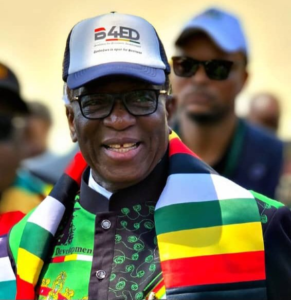HIGH COURT DENIES BAIL TO 73 OPPOSITION ACTIVISTS AMID GOVERNMENT CRACKDOWN

In a significant legal development, the High Court of Harare dismissed the appeal of 73 opposition activists from the CCC party, including notable former MP and minister Jameson Timba, affirming their ongoing detention without bail. This decision leaves only one of the 74 initially accused due to considerations of age granted bail.
The ruling comes at a critical moment as the government intensifies its scrutiny and suppression of what it perceives as potential protest orchestrators ahead of the forthcoming Southern African Development Community (SADC) summit scheduled for August 17 in Harare. The climate of fear and paranoia among the authorities has escalated following recent protests in Kenya, setting a tense backdrop for the court’s decision.
Justice Munamato Mutevedzi, presiding over the appeal, stated that the magistrate’s court did not misdirect its assessment in denying bail to the appellants. He highlighted that the magistrate exercised her discretion judiciously, leaving him no grounds to overturn her decision, except in the case of Maxwell Sande. Sande, due to his age, was released into the custody of his father under strict conditions ensuring his court attendance.
The court’s detailed judgement underscored the demographic and political unity among the appellants. They predominantly hail from the suburbs of Chitungwiza, Epworth, and Hatcliffe and share affiliations with the CCC party. Interestingly, a majority of these activists are under forty years and not formally employed, painting a picture of youthful disaffection and mobilization against the current government.
The group had been accused of conducting an unlawful assembly with the intent to organize anti-government demonstrations, an allegation that led to their initial bail denial by a magistrate in June 2024. Their collective appeal in the High Court, which raised multiple grounds, was mostly dismissed, underscoring the judiciary’s stance on matters concerning national security and public order at a politically sensitive time.
This decision not only impacts the lives of the 73 individuals and their families but also sends a stark message to opposition groups and activists within Zimbabwe. It illustrates the tightrope the judiciary walks between upholding legal norms and responding to government pressures in politically charged cases.
The international community and human rights organizations are likely to scrutinize this ruling closely, especially in light of Zimbabwe’s checkered history with political freedoms and judicial independence. The outcome may also affect the atmosphere of the upcoming SADC summit, with member states keenly watching Zimbabwe’s handling of political dissent and civil liberties.
As the country heads towards this significant regional meeting, the balance between maintaining public order and respecting political freedoms continues to challenge its democracy. The denial of bail to these opposition members not only raises questions about the fairness and independence of Zimbabwe’s judiciary but also about the broader implications for political stability and human rights in the region.



